November 18, 2014, In a crowd of thousand residents of Malungon, Sarangani Province along with the celebration of the town's 7th Slang Festival and Tribal Day, KafyeBlaan Empowerment Inc. was launched. With the KafyeBlaan Board of Trustees, the Founding President, Annalie Edday strongly encouraged the indigenous peoples of Malungon to take part in KafyeBlaan's mission of educating and empowering the indigenous Blaan community to be self-reliant and active contributors for development while retaining and strengthening their cultural identity. She cited the kiling-kiling story as a concrete example of how alarmingly detached are the young Blaans on their cultural roots and why there should be a great push for both muna to and dad nga (old people and young people) to be culturally connected. http://www.kafyeblaan.com/blog/the-kiling-kiling-in-the-1st-malungon-ip-youth-forum.
Marginalization is one of the greatest problems faced by the indigenous peoples especially in Mindanao, Philippines. Despite the efforts of governments and non-government organizations to address the issues faced by the indigenous peoples, the majority of indigenous are still suffering from marginalization. Majority of the indigenous peoples are still living below poverty, and still don't have access to education, potable water, health and road infrastructures.
Along with the problems in marginalization, they are also loosing their distinct language and beautiful cultural traditions. The younger indigenous generations are alarmingly disconnected to their cultural roots. Many of them are ashamed of identifying themselves as indigenous peoples. Political manipulations and discrimination have been great contributors of these issues.
It's been noted that there were tons of efforts geared towards indigenous development. However, those programs were always threatened by political changes in the government side and project termination in the non-government side. As a result, sustainability of the programs are always at risk.
It's also common that the efforts geared towards addressing indigenous concerns have poor results because the workforce carrying-out the programs are mostly not coming from the indigenous groups. Maybe it would have been different if the people working for indigenous concerns are coming directly from the indigenous groups.
The Blaan tribe is one of the 110 indigenous groups in the Philippines that extremely faces the above mentioned issues. Accordingly, this tribe wants to step up and take the lead in addressing their own issues through the KafyeBlaan Empowerment Inc. http://www.kafyeblaan.com/
At the end of her message, Edday thanked the LGU officials and employees, the barangay captains and tribal chieftains, the Department of Education and all non-government organizations and civic organizations for their efforts for the tribal community. She also enjoined the young people to help strengthen the tribe's cultural integrity by aggressively stepping up, taking leadership roles and striving harder to erase tribal dealership. "Most of us are culturally detached but it's not yet too late, let's choose to be reconnected. Let's choose to be active movers and not mere talkers. Let's choose to be deeply culturally-grounded so we can promote cultural evolution and not cultural prostitution. Above all, let's choose to be strategic actors of this changing world and not subjects of development nor subjects of tribalized tourism, " Edday added.
Marginalization is one of the greatest problems faced by the indigenous peoples especially in Mindanao, Philippines. Despite the efforts of governments and non-government organizations to address the issues faced by the indigenous peoples, the majority of indigenous are still suffering from marginalization. Majority of the indigenous peoples are still living below poverty, and still don't have access to education, potable water, health and road infrastructures.
Along with the problems in marginalization, they are also loosing their distinct language and beautiful cultural traditions. The younger indigenous generations are alarmingly disconnected to their cultural roots. Many of them are ashamed of identifying themselves as indigenous peoples. Political manipulations and discrimination have been great contributors of these issues.
It's been noted that there were tons of efforts geared towards indigenous development. However, those programs were always threatened by political changes in the government side and project termination in the non-government side. As a result, sustainability of the programs are always at risk.
It's also common that the efforts geared towards addressing indigenous concerns have poor results because the workforce carrying-out the programs are mostly not coming from the indigenous groups. Maybe it would have been different if the people working for indigenous concerns are coming directly from the indigenous groups.
The Blaan tribe is one of the 110 indigenous groups in the Philippines that extremely faces the above mentioned issues. Accordingly, this tribe wants to step up and take the lead in addressing their own issues through the KafyeBlaan Empowerment Inc. http://www.kafyeblaan.com/
At the end of her message, Edday thanked the LGU officials and employees, the barangay captains and tribal chieftains, the Department of Education and all non-government organizations and civic organizations for their efforts for the tribal community. She also enjoined the young people to help strengthen the tribe's cultural integrity by aggressively stepping up, taking leadership roles and striving harder to erase tribal dealership. "Most of us are culturally detached but it's not yet too late, let's choose to be reconnected. Let's choose to be active movers and not mere talkers. Let's choose to be deeply culturally-grounded so we can promote cultural evolution and not cultural prostitution. Above all, let's choose to be strategic actors of this changing world and not subjects of development nor subjects of tribalized tourism, " Edday added.
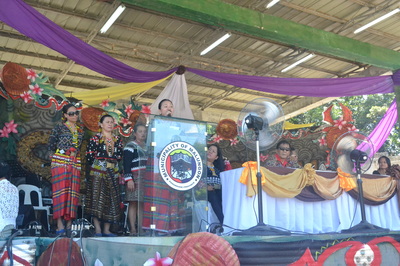
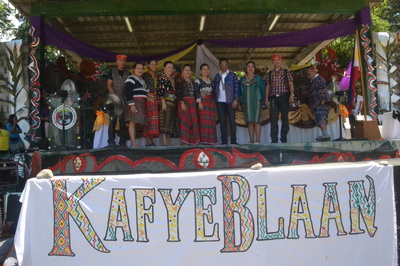
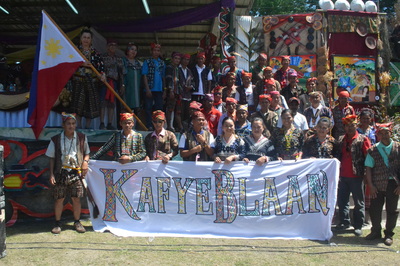
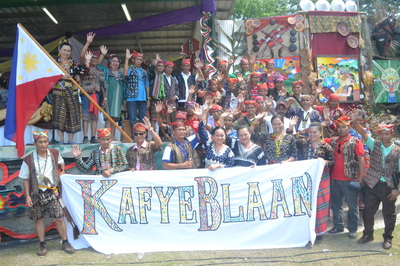
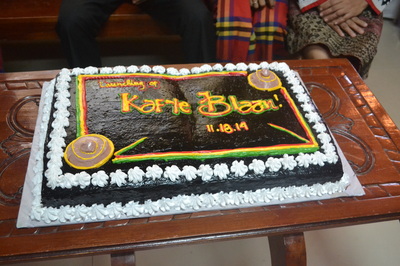
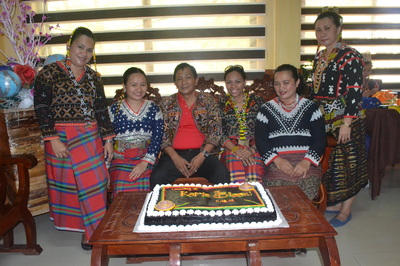
 RSS Feed
RSS Feed
